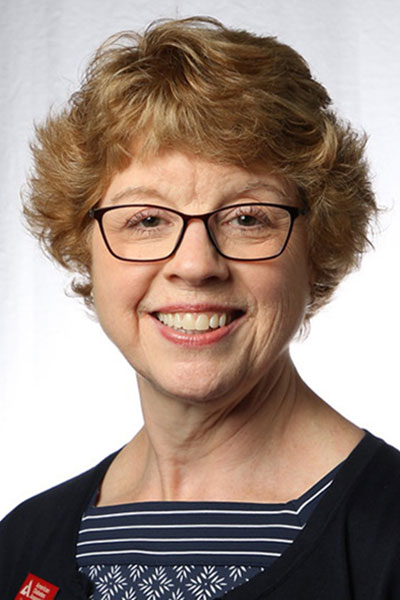
Patti Urbanski, MEd, RD, LD, CDCES, FADCES, American Diabetes Association® (ADA) President, Health Care & Education, had a clear message on Saturday morning, June 22, at the 84th Scientific Sessions: Diabetes education works.
In her presentation, “Lessons Learned—Diabetes Education for One and For All,” Ms. Urbanski highlighted ongoing research and available data on the effectiveness of diabetes education, weaving in her personal experience as a person diagnosed with type 1 diabetes in her adolescence and as a diabetes educator with over 35 years of experience in the clinic.
The full session, ADA Chief Executive Officer and Chairman of the Board Fireside Chat; President, Health Care & Education Address; and Outstanding Educator in Diabetes Award Lecture, can be viewed on-demand by registered meeting participants on the virtual meeting platform. If you haven’t registered for the 84th Scientific Sessions, register today to access the valuable meeting content through Aug. 26.
Ms. Urbanski also reviewed data demonstrating the significant impact of diabetes self-management education and support (DSMES) and medical nutrition therapy.
Diabetes education programs must go through a certification process, such as the ADA’s Education Recognition Program, to enable reimbursement of diabetes education services through Medicare and other payers. Ms. Urbanski summarized 2023 data—75 percent of participants in certified diabetes education programs decreased their A1C, on average by 1.4 percent, along with reductions in hospital admissions, emergency care visits, and body weight.
“This is pretty impressive when we think about the A1C reduction reported with some diabetes medications, especially if we factor in the average cost of diabetes education compared to medication costs,” Ms. Urbanski said.
As noted in the ADA’s 2024 Standards of Care, DSMES is also associated with improved quality of life, reduced all-cause mortality risk, positive coping behaviors, and lower health care costs, she added.

Ms. Urbanski also highlighted the importance of training and mentoring clinical staff, especially in the primary care setting, to provide them opportunities to learn about diabetes education. She spoke about the Duluth Family Medicine Residency program, the first residency program in the United States that incorporated an ADA-recognized education program. She said that it is important for diabetes educators to be embedded in the primary care team and to provide services where patients are most comfortable.
Ms. Urbanski highlighted lessons learned from three examples of successful integration of diabetes education programs into primary care: the University of Washington Medicine Primary Care Clinics in Seattle, Prisma Health in Greenville, SC, and Aspirus St. Luke’s in Duluth, MN.
“The demand for diabetes education is there, if we can offer flexible services to meet the needs of clinics and health care systems,” she said.
The ADA Education Recognition Program currently has 1,300 recognized diabetes education programs and almost 3,700 sites where education is offered. Ms. Urbanski said that while the number of programs has decreased over the past several years, education sites have increased. She noted that most diabetes education programs report that their services are offered in an outpatient hospital or endocrinology specialty setting, rather than in primary care practice. She reviewed some of the ADA’s programs and initiatives focused on expanding diabetes education into primary care settings.
“The time is now. We need to collect and disseminate information from successful programs and learn best practices to offer programming assistance to existing education programs, to expand their services into primary care,” Ms. Urbanski said.
The session also featured a candid and inspiring conversation between the ADA Chief Executive Officer, Charles D. Henderson, and the Chairman of the Board of Directors, Rhodes B. Ritenour, in which they framed advances in diabetes care and the exemplary work of the ADA through their personal experiences as a member of a family with a history of diabetes complications, and a person living with type 1 diabetes since kindergarten.
The 2024 Outstanding Educator in Diabetes Award recipient, Joshua J. Neumiller, PharmD, CDCES, FADCES, FASCP, at Washington State University, also spoke during the session.
Get On-Demand Access to the Scientific Sessions
There is still time to register for on-demand access to learn about the latest advances in diabetes research, prevention, and care presented at the 84th Scientific Sessions. Select session recordings will be available through Aug. 26.